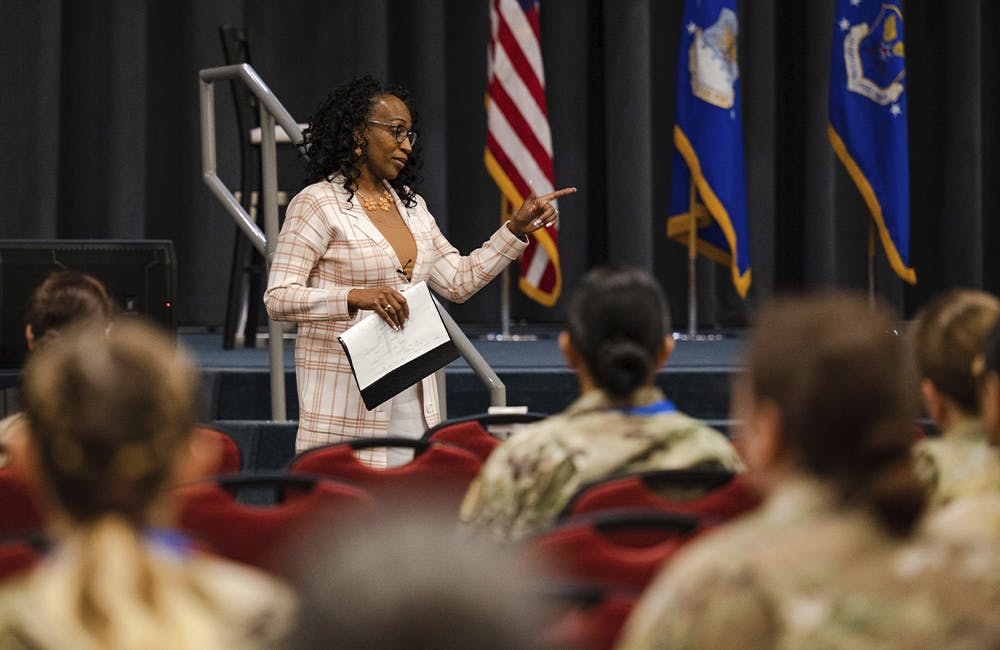DOD’s Replicator Drone Program Will Select First Tranche Soon
Deputy Secretary Kathleen Hicks spoke about the new program to build autonomous drones at speed and scale.

The Defense Department will soon make its first selections for a program designed to acquire and produce all-domain attributable autonomous systems at rapid scale and speed, according to Deputy Secretary Kathleen Hicks.
The agency created the program, called Replicator, in August and is one aspect to the department’s growing priorities in the Indo-Pacific region to counter threats from China. Hicks said selections for the program will look at all domains, with a focus on making the biggest difference in a two-year window.
“Our goal here is an operational goal, which is in addition to the acquisition cycle, and that operational goal is to create dilemmas for China, and any other competitor who might look at this approach and try to undermine it,” Hicks said at a Defense Writers Group session.
Hicks has said that Replicator will source itself from existing funding and will avoid creating a new level of bureaucracy within the department. In fact, Hicks said that Replicator is designed to skip bureaucratic red tape. The goal of Replicator is to develop autonomous drones as a specific counter to China’s superiority of scale in the Indo-Pacific region.
“We have multiple valleys of death in the department — one of the most vexing is that scaling production,” Hicks said. “We also know we have a challenge with the commercial sector looking at DOD as a strong and capable partner that can work within the two-year appropriations process, not just wait every two years to make major new investments.”
Replicator’s first tranche will be focused on accelerating systems that only need an additional source of funding or removal of barriers to be successful, with expectations that less mature programs could receive funding in subsequent tranches of selection.
“We’ve shown we can take years off of programs by just taking the bureaucracy out. Being problem solvers, solving their own problems. That’s what we’re doing with Replicator. We’ve also picked an area that is very important to Indopacom and other programs that will really move the needle with very low dollars,” she added.
Hicks said the programs to receive funding will be shared with Congress. Hicks added that the program’s impact on the budget will be miniscule and estimated the program to cost less than 0.5% of the budget, with the focus on cheaper near-term solutions.
This is a carousel with manually rotating slides. Use Next and Previous buttons to navigate or jump to a slide with the slide dots
-

Federal Leaders Revamp Tech Workforce, Policy
Despite the rise in interest of emerging technology, federal leaders see data, policy and the workforce as a best vehicle for change.
4m read -

Looking Back at the First Trump Administration's Tech Priorities
In his first term, Donald Trump supported cybersecurity, space policy and artificial intelligence development.
4m read -

Labor CAIO Outlines Responsible and Ethical AI Priorities, Use Cases
Department of Labor Chief AI Officer Mangala Kuppa outlined how her role is shaping the agency’s artificial intelligence strategy.
20m watch -

Elevating Cybersecurity in the Intelligence Community
The Intelligence Community is developing strategies to protect data and strengthen resiliency against emerging cyber threats.
30m watch








